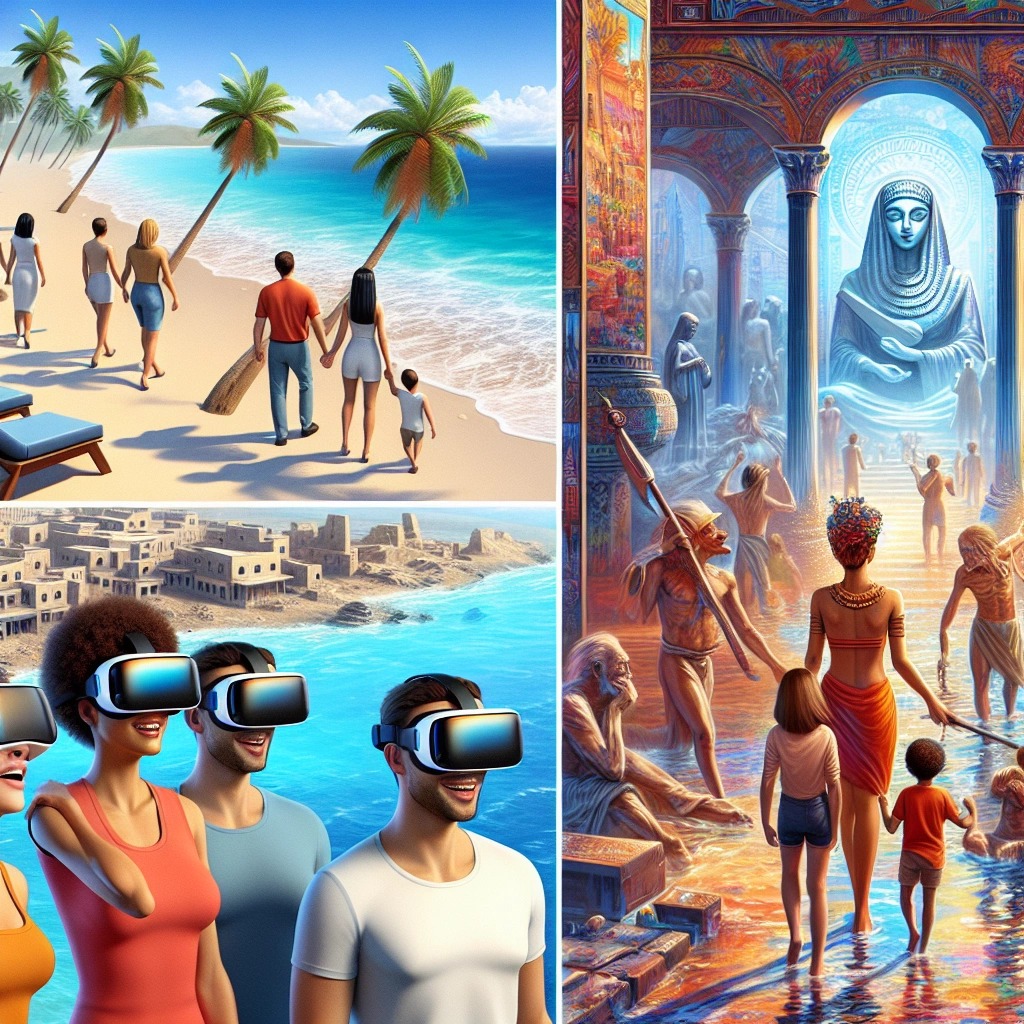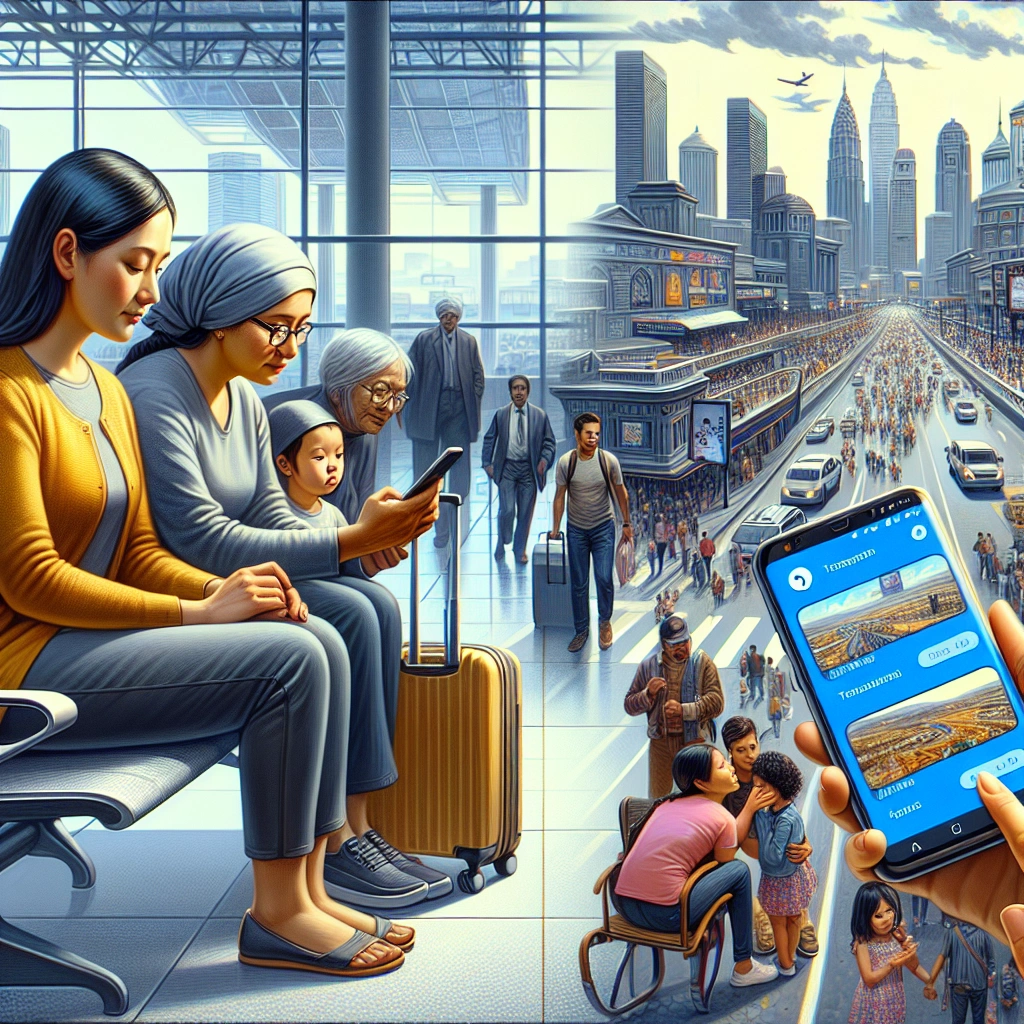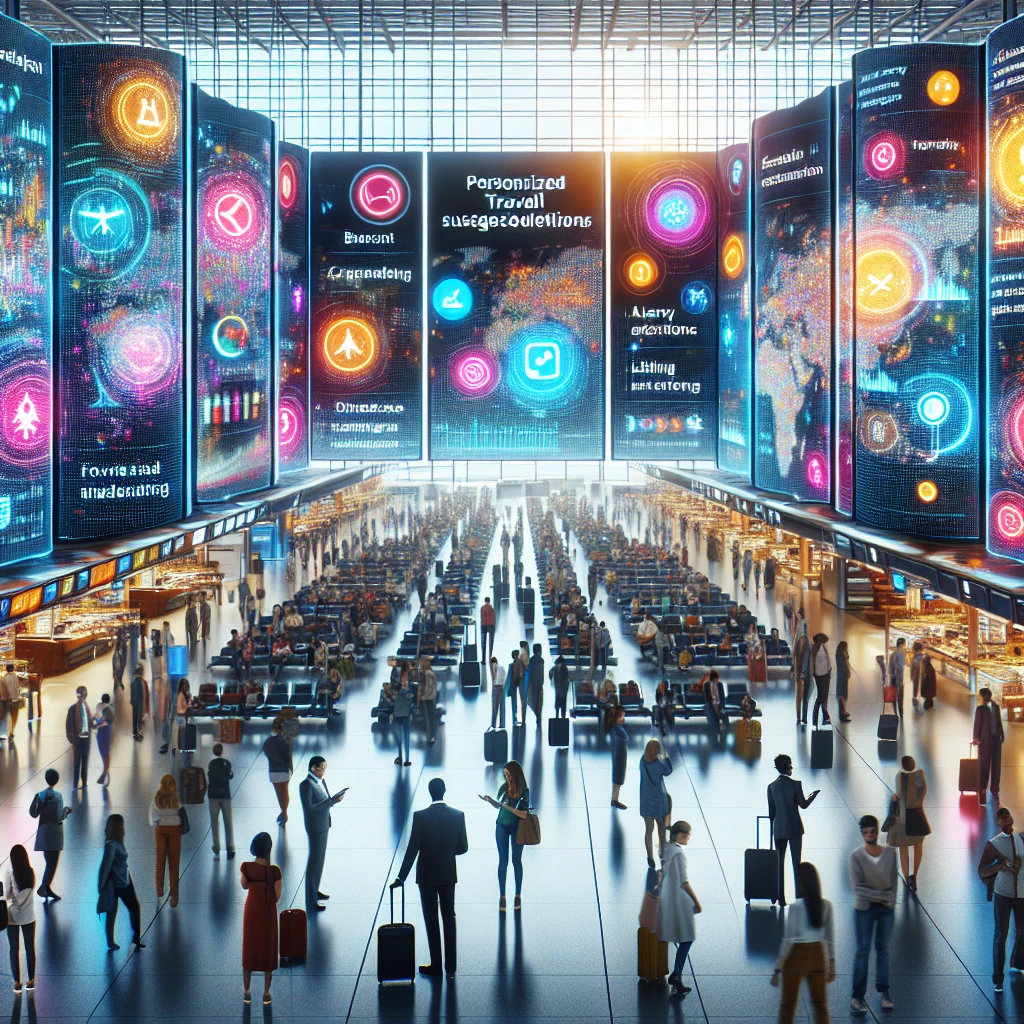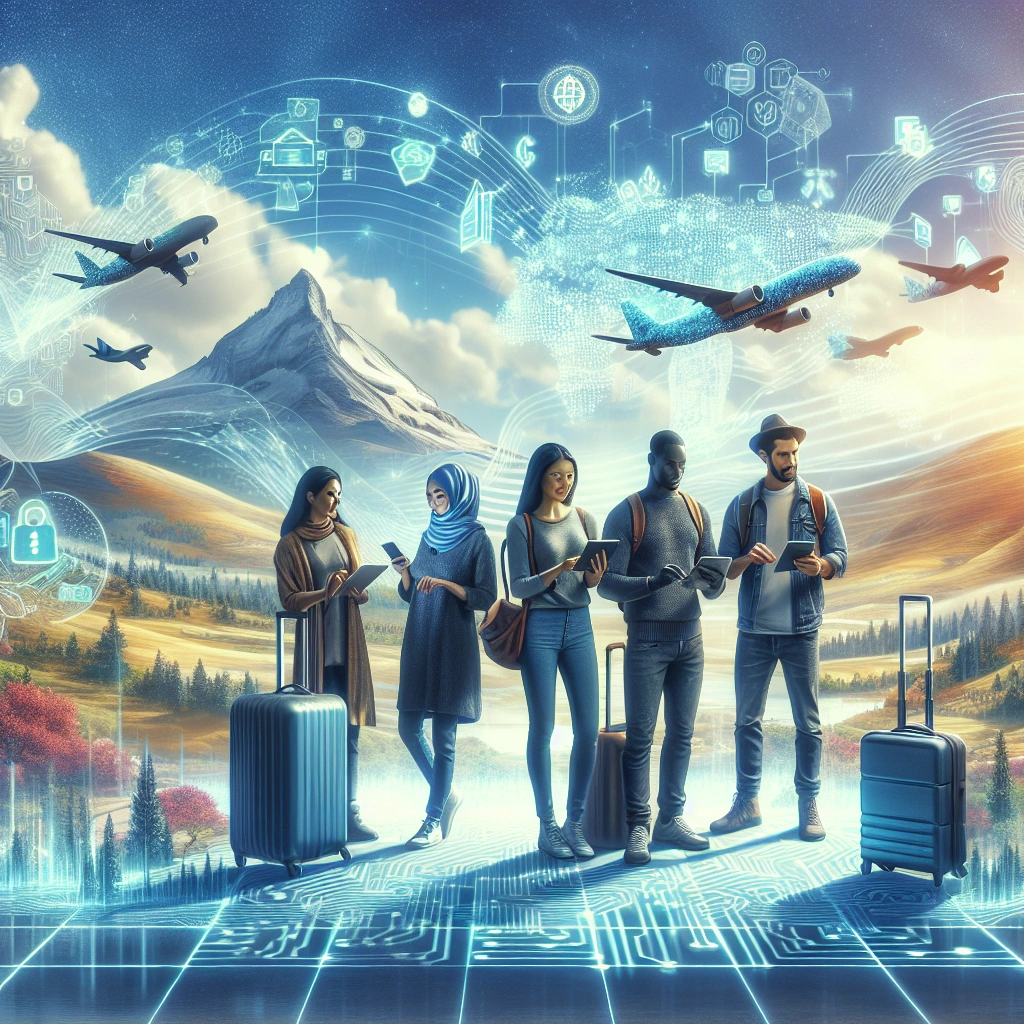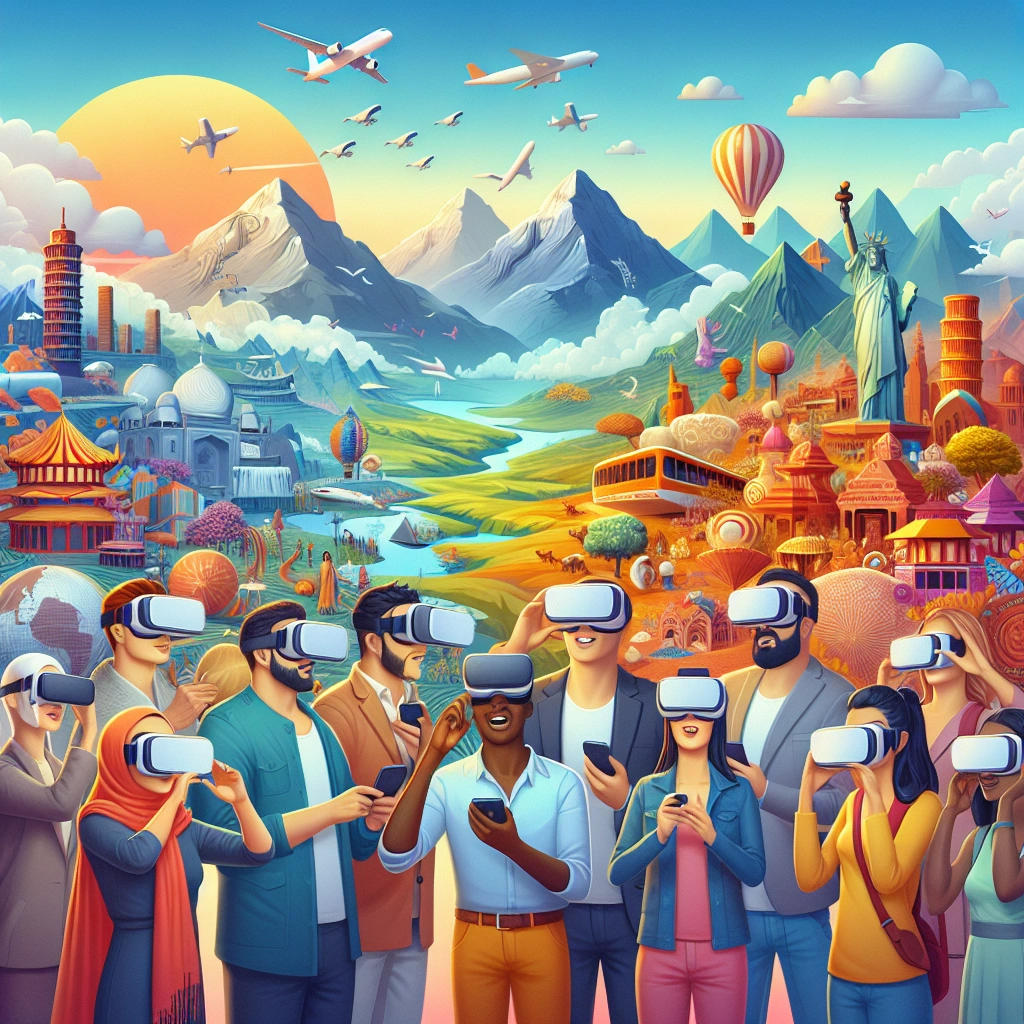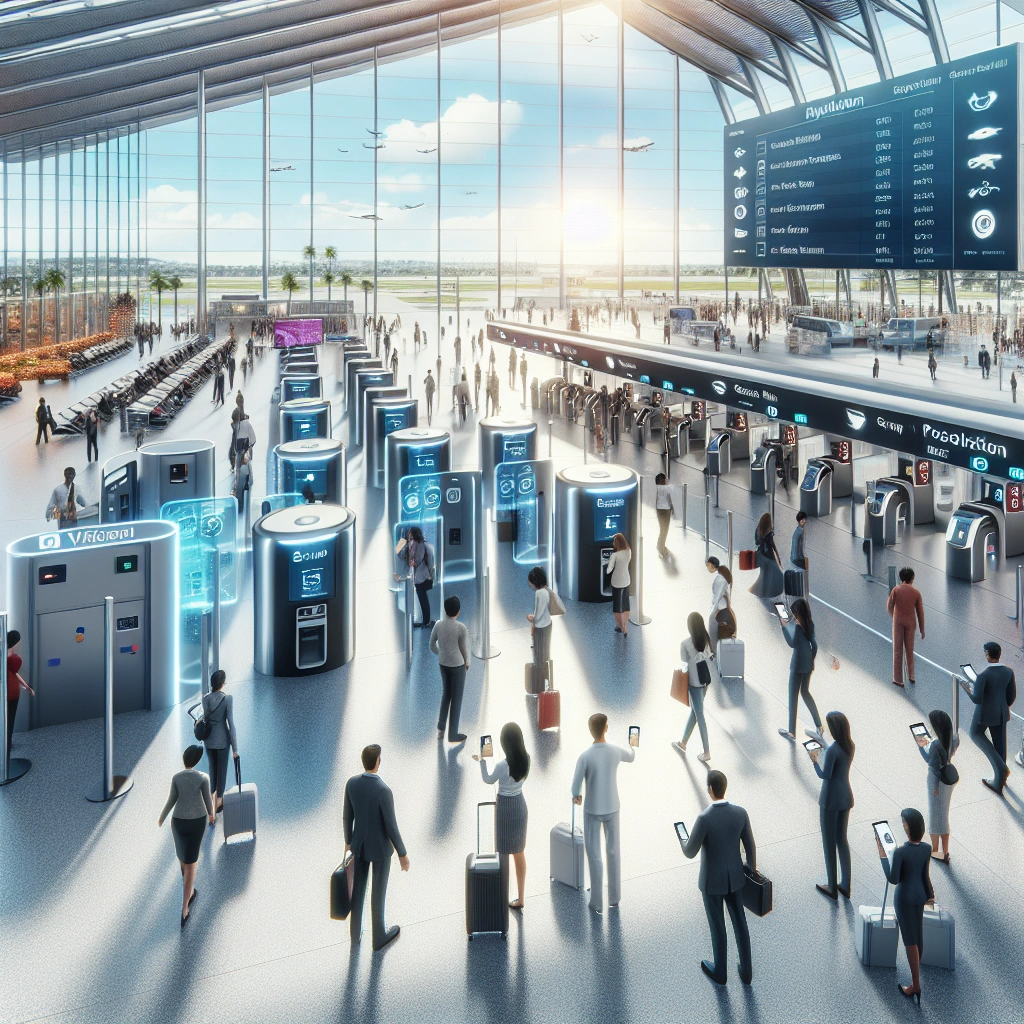

Technology has significantly transformed the travel industry, revolutionizing the way people plan and experience their trips. There are seven key ways in which technology is changing the travel industry, providing convenience, safety, and personalized experiences for travelers.
From online booking and travel planning to the use of mobile apps, contactless payments, and IoT devices, technology has become an integral part of the travel experience. As the world emerges from the impact of COVID-19, travelers are eager to make up for lost time, and technology is playing a crucial role in shaping the future of travel.
Check out this Youtube video: Explore seven ways technology is revolutionizing the travel industry and learn how it’s shaping the future of tourism and travel management!
Improved Booking Experience
The introduction of online booking platforms has revolutionized the way people plan and book their travel. With these platforms, travelers have the flexibility to browse through various options, compare prices, and make reservations with just a few clicks.
This level of convenience has significantly enhanced the overall booking experience.
Streamlined booking processes have also been a game-changer in the travel industry. Technology has enabled the simplification of complex booking procedures, making it easier for users to navigate through the entire process.
With step-by-step guidance and intuitive interfaces, customers can now swiftly complete their bookings without any hassle.
Moreover, personalized booking recommendations have emerged as a key benefit of technological advancements in the travel sector. Through data analysis and user behavior tracking, booking platforms can offer tailored recommendations to users, suiting their preferences and previous booking patterns.
This level of personalized service enhances the overall experience, making travelers feel valued and understood.
Virtual Reality for Destination Exploration
Virtual reality (VR) is revolutionizing the travel industry by offering immersive virtual tours of destinations. With VR technology, travelers can explore tourist attractions, landmarks, and cultural sites from the comfort of their homes.
This immersive experience provides a preview of destinations, enticing travelers to visit in person while offering a glimpse of locations that may be difficult to reach or have limited accessibility. For example, potential visitors can virtually visit remote locations, historical sites, or natural wonders before making travel plans.
Furthermore, VR technology enhances travel planning by providing a more personalized and immersive experience. Travelers can use VR to gain knowledge about different travel destinations and attractions, allowing them to plan their trips ahead of time with a deeper understanding of the places they wish to visit.
Moreover, this technology offers an enhanced training opportunity for travel industry professionals, such as tour guides and travel agents. They can benefit from VR-based training modules, familiarizing themselves with destinations and improving their ability to provide accurate and detailed information to clients.
VR technology is fundamentally changing the dynamics of the travel industry by offering virtual tours of destinations and enhancing travel planning. It enables travelers to explore and experience destinations in an immersive way, ultimately transforming the way people plan and embark on their travel adventures.
| Virtual Reality Benefits in Travel Industry |
|---|
| 1. Immersive virtual tours of destinations |
| 2. Enhanced travel planning experience |
| 3. Training modules for travel professionals |
Mobile Applications for Travel
Accessing travel information on-the-go
Travelers can now access real-time travel information on-the-go through innovative travel apps, revolutionizing the way we plan and navigate trips. Apps like Google Travel and Kayak provide comprehensive resources for researching and comparing flight options, allowing users to filter by airline, departure time, and number of stops.
With these apps, travelers can quickly zero in on the most suitable flight options, enhancing their travel planning efficiency and flexibility.
Using travel apps for navigation and language translation
Travel apps are now indispensable tools for navigation and language translation during travel. Translation apps like Google Translate enable seamless communication in diverse destinations by offering translation of 108 languages through typing, 59 languages offline, and camera translation in 90 languages.
Such apps empower travelers to immerse themselves in diverse cultures and interact like locals, enhancing the overall travel experience.
Mobile check-ins and digital boarding passes
Technology has significantly transformed the check-in process with the advent of mobile check-ins and digital boarding passes. These advancements offer travelers greater convenience, speed, and environmental friendliness.
Mobile boarding passes provide enhanced security against fraud, expedite the boarding process, and enable immediate access to boarding passes, saving time and resources.
| Pros | Cons |
|---|---|
| Greater protection against fraud | Need to refresh phone for the pass to stay active in line |
| Speeds up the boarding process | Requires internet access for immediate access to the pass |
| Immediate access to boarding pass | Potential hassle in case of phone malfunction or battery drain |
| Environmental friendliness |
Big Data and Personalized Travel Experiences
Utilizing big data to personalize travel recommendations
Big data plays a crucial role in tailoring travel recommendations to individual preferences. By analyzing vast amounts of customer data, travel companies can gain insights into travelers’ behaviors, interests, and booking patterns.
This allows for the personalization of travel recommendations, such as suggesting destinations, accommodations, and activities that align with each traveler’s unique preferences.
Customized travel itineraries based on preferences and behavior
Moreover, big data enables the creation of customized travel itineraries that are uniquely tailored to individual preferences and behavior. For instance, by leveraging technology and data analytics, travel companies can curate personalized itineraries that align with specific interests, such as adventure travel, cultural experiences, or culinary tours.
This level of customization enhances the overall travel experience by providing tailored recommendations that resonate with each traveler’s preferences and behavior.
| Benefits of Utilizing Big Data for Personalized Travel Experiences |
|---|
| Personalized recommendations based on individual preferences |
| Customized travel itineraries aligned with specific interests |
| Enhanced travel experiences through tailored suggestions |
The utilization of big data in the travel industry enables the personalized customization of travel recommendations and itineraries, resulting in more fulfilling and tailored travel experiences for individuals.
Artificial Intelligence in Customer Service
Chatbots for instant customer support: AI-powered chatbots are revolutionizing customer support by providing instant assistance to travelers. These chatbots leverage natural language processing and machine learning to understand and respond to customer queries in real-time. By utilizing vast data sources, they can provide accurate information and solutions, thereby reducing average call handling times and increasing first-time query resolution rates.
AI-powered virtual assistants for travel planning and recommendations: Virtual assistants powered by AI are transforming the travel industry by offering personalized recommendations and streamlining trip planning. These assistants analyze user preferences and behavior to provide tailored travel suggestions, making the process more efficient and personalized for travelers. Additionally, AI-driven tools such as route planners and flight trackers optimize itineraries, offer travel insights, and keep travelers informed about their flights, enhancing the overall travel experience remarkably.
| Pros of AI in Customer Service | Cons of AI in Customer Service |
|---|---|
| – Instant Assistance | – Potential Lack of Empathy |
| – Enhanced Personalization | – Limited Emotional Intelligence |
| – Improved Efficiency | – Overreliance on Data Sources |
AI is significantly enhancing customer service in the travel industry by providing quick, personalized support and streamlining trip planning processes. However, the potential for a lack of empathy and limited emotional intelligence are key considerations when leveraging AI in customer service.
Note: The table above provides a brief comparison of the pros and cons of using AI in customer service within the travel industry.
Impact of Social Media on Travel Decisions
Influence of social media on travel trends
Social media’s influence on travel trends is undeniable, with approximately 52% of travelers being swayed to visit a specific destination after encountering images or videos shared by friends, family, or peers on social platforms. Additionally, a staggering 87% of millennials rely on social media for their travel inspiration.
This indicates a significant shift towards leveraging social networks as a primary source of travel influence and decision-making.
Leveraging social media for travel inspiration and recommendations
Leveraging social media for travel inspiration and recommendations has become a prevalent trend, surpassing traditional outlets such as travel agents and media publications. Visual social media platforms like Instagram and Facebook have emerged as go-to sources for destination inspiration, hotel research, and activity planning.
Furthermore, social media has enabled travelers to share unfiltered experiences through DIY storytelling, allowing them to discover new places, gather suggestions, and connect with like-minded individuals. As a result, social media has redefined the way travelers seek, share, and validate travel recommendations, shaping the industry’s landscape in unprecedented ways.
| Pros | Cons |
|---|---|
| Enables real-time sharing of travel experiences | May create unrealistic expectations through curated content |
| Facilitates spontaneous exploration and discovery | Potential for oversharing and information overload |
| Fosters a sense of community and connection among travelers | Risk of negative impact on authentic travel experiences |
The impact of social media on travel decisions is profound, contributing to a paradigm shift in how travelers seek inspiration, research destinations, and make informed choices. As the travel industry continues to evolve, embracing the power of social media as a reliable source of recommendations and inspiration will be imperative for both travelers and businesses alike.
All in all, the rise of social media as a prominent influencer in travel decisions is reshaping the way people explore the world, discover new destinations, and connect with fellow travelers, marking a new era in the travel industry.
Blockchain Technology for Secure Transactions
Ensuring secure and transparent transactions in the travel industry
Blockchain technology is revolutionizing the travel industry by ensuring secure and transparent transactions. With its decentralized structure, all data and transactions are distributed across multiple nodes, eliminating the need for a central authority.
This enhances security and transparency, addressing the challenges of customer data privacy and security, thus building trust among travelers.
Implementation of blockchain for payment processing and booking verification
The implementation of blockchain for payment processing and booking verification resolves the issue of expensive intermediary fees and additional charges. This technology enables secure payment processing, transparent supply chains, and reliable identity verification, leading to smoother transactions.
Additionally, it eliminates middlemen and commission fees, providing cost-effective solutions for travel companies.
| Advantages of Blockchain Technology |
|---|
| 1. Enhanced Security and Transparency |
| 2. Elimination of Intermediary Fees |
| 3. Reliable Identity Verification |
| 4. Cost-effective Solutions |
| 5. Decentralized Structure |
Recommended Amazon Products for Travel Planning and Exploration
Here’s a curated list of products that can help you explore and plan your travel experiences with ease. These recommendations are based on functionality, price, and positive customer reviews.
Bose QuietComfort 35 (Series II) Wireless Headphones
The Bose QuietComfort 35 (Series II) Wireless Headphones can enhance your travel planning and exploration by providing top-notch sound quality for immersive experiences.
Amazon search link: Bose QuietComfort 35 (Series II)


Oculus Quest 2
The Oculus Quest 2 offers an unparalleled virtual reality experience, allowing you to explore destinations and plan your travels through immersive virtual tours with ease.
Amazon search link: Oculus Quest 2


Anker PowerCore 26800 Portable Charger
The Anker PowerCore 26800 Portable Charger ensures that your mobile devices are always powered up, enabling you to access travel information on-the-go and never miss out on important notifications.
Amazon search link: Anker PowerCore 26800


Apple AirPods Pro
The Apple AirPods Pro is a must-have for travel, offering excellent sound quality, noise cancellation, and seamless integration with Apple devices for an enhanced travel experience.
Amazon search link: Apple AirPods Pro


Sony Alpha a6400 Mirrorless Camera
The Sony Alpha a6400 Mirrorless Camera allows you to capture high-quality travel memories with its advanced features and compact design, making it an ideal companion for travel exploration.
Amazon search link: Sony Alpha a6400


Top Recommended Product for Travel Planning and Exploration
If you’re looking for the best solution for travel planning and exploration, we highly recommend the Oculus Quest 2. Here’s why:
Pros:
| Pros | Details |
|---|---|
| Immersive VR Experience | The Oculus Quest 2 provides an unparalleled virtual reality experience for destination exploration. |
| Portable | The wireless and standalone design of the Oculus Quest 2 offers portability for travel. |
| Easy Setup | Simple and intuitive setup makes it easy to use while on the go. |
Cons:
| Cons | Details |
|---|---|
| Price | The price point may be higher compared to other VR headsets. |
| Battery Life | Limited battery life during extended use. |
| Limited Apps | Limited selection of apps compared to other VR platforms. |
Ready to improve your travel planning and exploration? Check out Oculus Quest 2 today for the best results!


Conclusion
Technology is changing the travel industry by providing more personalized experiences for travelers. This includes the use of Big Data and AI to tailor recommendations and offers based on individual preferences, making travel more convenient and enjoyable for customers.
Furthermore, technology is streamlining the booking and payment process, making it easier and more efficient for travelers. This includes the use of mobile apps, contactless payment options, and digital boarding passes, which all contribute to a smoother travel experience.
Lastly, we can see that technology is enhancing safety and security in the travel industry through the use of biometrics, facial recognition, and other advanced tools to verify passengers’ identities and keep track of their movements. These developments are helping to improve overall travel experiences and build trust among travelers.

